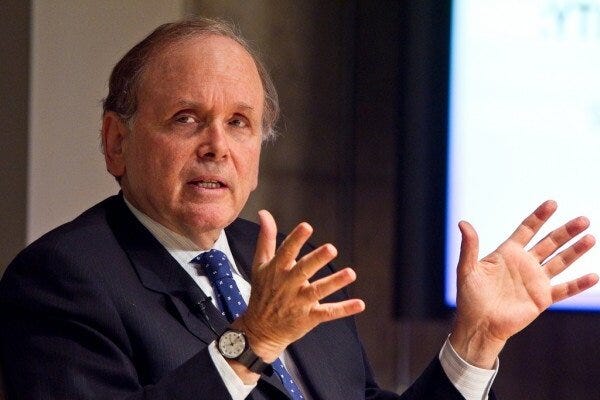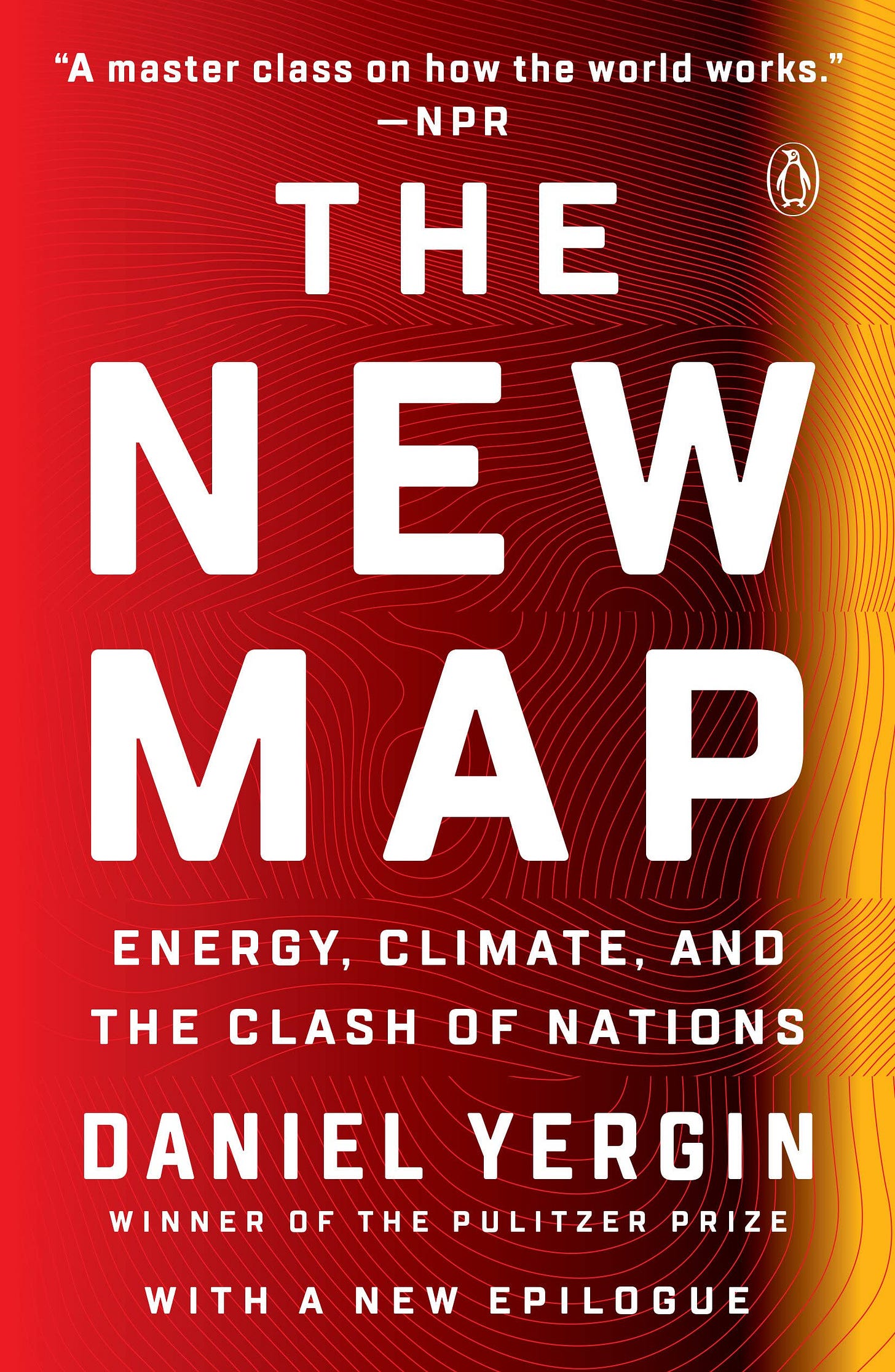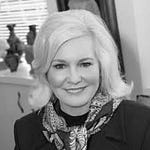On the energy transition: “I think that the notion that all the changes can come quickly in an economy of our size, in a $100 trillion world economy, that you can just change it in 25 years, in a quarter of a century…it's very ambitious.”
Welcome to the Hale Report with Lyric Hughes Hale, editor-in-chief of EconVue and your host today. EconVue, based in Chicago, is a home for independent voices and expert analysis of critical global economic issues.
My guest for the 43rd episode of the Hale Report is Daniel Yergin, Vice Chairman of IHS MARKIT and founder of CERAWEEK. He is an expert in the geopolitics of energy and the global economy. A Pulitzer-prize winning author, his best selling books include The Prize, The Quest, and Shattered Peace. He is the co-author of Commanding Heights, which became a PBS documentary series.
His latest book is The New Map: Energy, Climate and the Clash of Nations was published by Penguin Press. The book is actually about the convergence of several maps: America, Russia, China, the Middle East, Road, and Climate maps.
There is a terrific quote in The New Map. Yergin says that the first phase of globalization was fueled by energy, but that is no longer the case:
The momentum is now going in reverse. The world has become more fractured, with a resurgence of of nationalism and populism and distrust, great power competition, and with a rising politics of suspicion and resentment. Globalization doesn’t go away. But it becomes more fragmented, and more contentious, adding to the troubles along the already troubled path to economic growth.
I met Daniel Yergin perhaps twenty years ago, about the time of the “Peak Oil” panic. What he said then was revelatory and led me to rearrange my thinking on energy. Within this framework, my best prediction for 2022 was that the oil price would fall to $65, a contrarian view at the time. His latest book indispensable reading for anyone trying to make sense of a world that sometimes feels as if it is falling apart.
We discussed a wide range of topics, from climate change to cryptocurrencies to Ukraine, the Four Ghosts of the South China Sea, and the utter serendipity of innovation. Below are just a few of my questions. As you will hear in the podcast, Yergin’s answers are based on deep expertise and historical knowledge, but he has the gift of a storyteller, and offers clarity on the complex issue of global energy.
In a recent oped in The Wall Street Journal you wrote that political instability will make it difficult to obtain all the minerals electric cars require. Can the EV targets in states such as California possibly be met?
Is there a fast track to electrification or is the global energy system simply too complex to change quickly? Will oil and gas remain the world’s primary energy sources for the foreseeable future?
What about supply? What do you think about new finds off Guyana, the South China Sea, and the Arctic? Do they have the potential to change the geography of energy?
Another supply issue is new technologies that increase production such as shale. In your book, I learned that Chicago played a part in this development. What will happen to shale going forward?
There is a section called AutoTech about new models of transportation such as Uber that could change energy consumption. What is the sociological impact on energy?
You began writing your book in 2020. The pandemic was an enormous demand shock. What do you think are the lasting effects of Covid on energy markets?
Did Edward Snowden actually precipitate the Ukraine conflict? Or did sanctions? You write: “there is a risk that the commanding position of the United States-derived from its capital markets and the dollar, could be eroded over time by the overreliance on financtial sanctions, because nations will find alternatives.”
Given events in Ukraine, which you clearly predicted in The New Map, how does Europe respond? Germany recently closed down the last three of its nuclear plants. How successful will the EU be at energy transition?
The Middle Eastern map, the current geographic contours were colonial constructs, chronicled in your book The Prize. Now that the US is more self-sufficient in energy, will China and Russia fill the vacuum in the Middle East?
Recently OPEC cut production and is likely to do so again this year, given current global economic forecasts. What do you make of Saudi Arabia’s new foreign policy moves, re-establishing ties with Iran, and China?
China seems to be spreading out its energy risks, by becoming a leader in unconventional energy and also by strengthening its ties with suppliers such as Saudi Arabia and Venzuela. Is this a good thing for global stability?
China and Brazil have an agreement to trade in yuan, as does Saudi Arabia. What does this mean for the USD?
In previous epochs, world trade depended on the flow of silver but now energy is in a way the world’s critical resource as well as a kind of currency. In fact crypto currencies are based on calculations that use energy. What do you think of energy-based currencies such as bitcoin-do they reflect the reality of the world we live in better than other standards such as gold?
I am certain that you will learn as much as I did from Daniel Yergin on this podcast. By the way, if you decide to read the book, please order the paperback version of The New Map, it has been updated to reflect very current events. NPR called the book “a master class in how the world works” and they are not wrong.
Finally, many thanks to all the people behind the scenes who make The Hale Report possible, Managing Editor Ying Zhan and our producer, Sam Fu.
Listen to our podcasts on Apple, Spotify, and all the usual places. Don’t miss our latest content, including The China Report, by becoming a subscriber on Substack.












